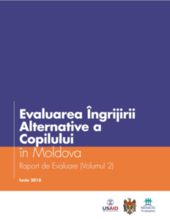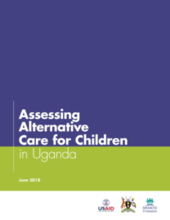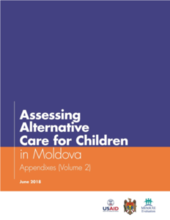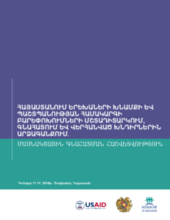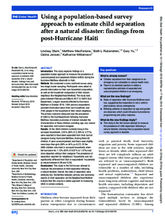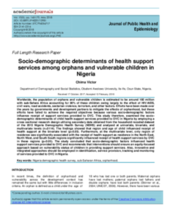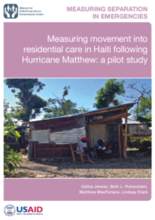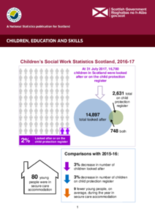Displaying 141 - 150 of 565
This report, in the Moldovan langauge, presents the findings of an assessment workshop aimed at informing action planning to address priority needs identified in alternative care for children in Moldova.
This report presents the findings of an assessment workshop aimed at informing action planning to address priority needs identified in alternative care for children in Moldova.
This report presents the findings from an assessment workshop aimed at informing action planning to address high-priority needs identified in alternative care for children in Uganda.
This report presents the findings of an assessment workshop aimed at informing action planning to address priority needs identified in alternative care for children.
This report, in Armenian, presents the findings of an assessment workshop aimed at bringing together key stakeholders—decision makers, policy developers, service providers, civil society representatives, and donors—to assess and identify the main care reform areas in which action is needed.
This paper provides an illustrative case involving the development and testing of models used to predict the probability of whether U.S. foster children would achieve legal permanency.
This study explores findings of a population-based approach to measure the prevalence of unaccompanied and separated children (UASC) during the Hurricane Matthew aftermath in Haiti.
This study examined the sociodemographic determinants of child health support services provided to orphans and vulnerable children in Nigeria by employing a cross sectional research design utilizing secondary data obtained from the household recoded dataset of the 2013 Nigeria Demographic Health Survey (NDHS).
The purpose of this study was to determine the feasibility of evaluating movement of children into residential care following an emergency.
This report from the Scottish government presents the latest data on children and young people looked after, on the child protection register and in secure care.

